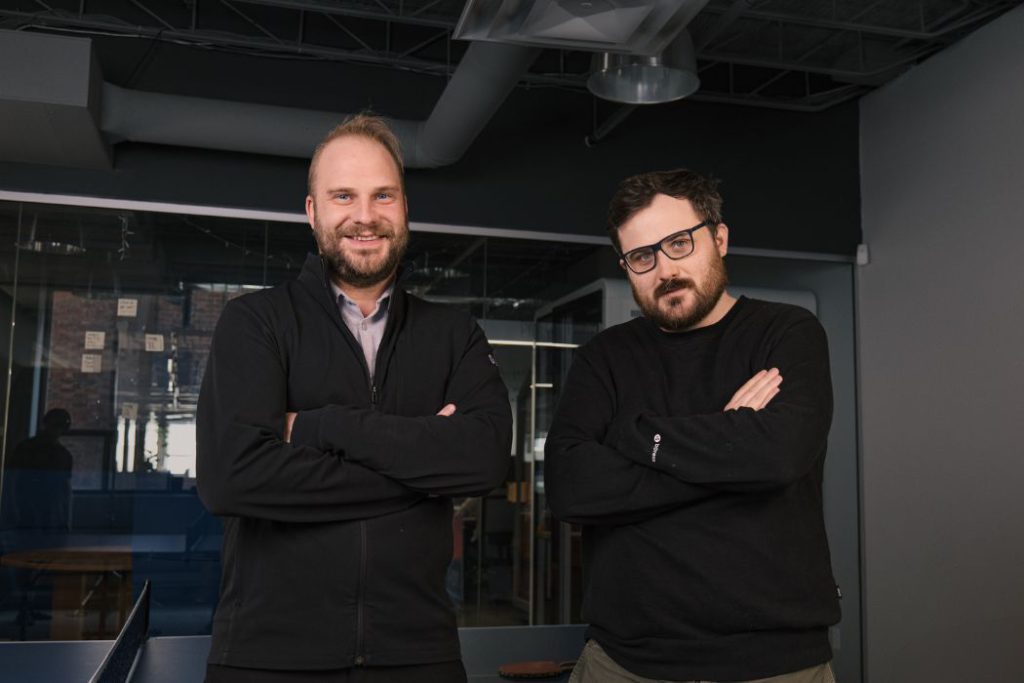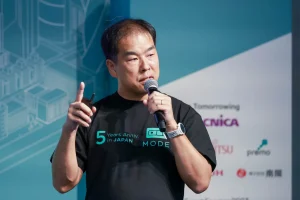 Five years ago on Jan. 1, along with two partners, I started a services business at the depth of the worst economic conditions in the U.S. since the Great Depression. As our company, Elasticity, reaches this milestone, I have been thinking quite a bit about what took us from three aging knuckleheads to a staff of 15 and a growing national reputation despite being based in what many on the coasts consider “flyover country” in St. Louis. And each time I think about it, there is one simple answer to what’s led to our fledgling success: Culture. An organization, after all, is only as good as its people, much like a salad is only as good as each vegetable that goes into the mix. Workplace cultures and salads do indeed share much in common: Comprised by a variety of individual pieces, each having unique flavors that make up an aggregate entity, which hopefully is rather, well, delicious.
Five years ago on Jan. 1, along with two partners, I started a services business at the depth of the worst economic conditions in the U.S. since the Great Depression. As our company, Elasticity, reaches this milestone, I have been thinking quite a bit about what took us from three aging knuckleheads to a staff of 15 and a growing national reputation despite being based in what many on the coasts consider “flyover country” in St. Louis. And each time I think about it, there is one simple answer to what’s led to our fledgling success: Culture. An organization, after all, is only as good as its people, much like a salad is only as good as each vegetable that goes into the mix. Workplace cultures and salads do indeed share much in common: Comprised by a variety of individual pieces, each having unique flavors that make up an aggregate entity, which hopefully is rather, well, delicious.  I like to think of it as a Tasty Culture, if you will — the tastier, in my opinion, the more successful. Which is why when constructing the business plan to create Elasticity back in 2008, we knew that our “People Principles“ – which stem from prior experiences in work, life, family and play — were an essential part of our foundation. We’ve since endeavored to hire smart people who fit well into that Tasty Culture, then we empower them with trust and believe they will be inspired to excel if our environment enables them to think, grow, have fun, create, and explore new concepts. Part of this is giving equal respect to the opinions of any employee regardless of age, experience, bacon tolerance, hairstyle, affinity for Chuck Norris cinema, or any other measure. We do this due to a belief that everyone brings something valuable to the table, as otherwise, we would not have hired them in the first place. Thus, we were honored when author Nacie Carson cited us in this Fast Company story about mentorship and cultures. Yet I was far more proud when, after the story appeared, I sent it to our team and received this note back from one of our employees:
I like to think of it as a Tasty Culture, if you will — the tastier, in my opinion, the more successful. Which is why when constructing the business plan to create Elasticity back in 2008, we knew that our “People Principles“ – which stem from prior experiences in work, life, family and play — were an essential part of our foundation. We’ve since endeavored to hire smart people who fit well into that Tasty Culture, then we empower them with trust and believe they will be inspired to excel if our environment enables them to think, grow, have fun, create, and explore new concepts. Part of this is giving equal respect to the opinions of any employee regardless of age, experience, bacon tolerance, hairstyle, affinity for Chuck Norris cinema, or any other measure. We do this due to a belief that everyone brings something valuable to the table, as otherwise, we would not have hired them in the first place. Thus, we were honored when author Nacie Carson cited us in this Fast Company story about mentorship and cultures. Yet I was far more proud when, after the story appeared, I sent it to our team and received this note back from one of our employees:
Thank you for sharing this. During my interview process, we made each other several promises. I promised you that I’d pay attention to the details, that I’d create compelling content and that I’d help you to stay organized, among other things. You promised me a fun place to work – an environment in which I could laugh, grow and actually contribute. The most important promise you made me, however, the ONE THING that encouraged me to sign on the dotted line – you promised you wouldn’t treat me like I was beneath you. I’m not sure you used those words exactly, but close enough. These past few months have really been eye opening for me. I’ve bounced around quite a bit in my short career because I’ve never truly felt valued anywhere I’ve been. What you said about your former employer is true of everywhere I’ve worked. This is the first time I have felt like my presence matters. Elasticity has shown me that it’s entirely possible to love what you do and love who you do it for. I’ve never had it both ways. And my God! The freedom! You don’t censor me. You don’t hold my hand when I’m interacting with clients. You don’t request to see every last deliverable before it leaves the building. I am working significantly less physical hours than I was, but the quality of my work is improving every day. I feel challenged, important and motivated – and happy! I’m just happy to be here. And I’m not just saying this because you sign my paychecks. You asked and I would tell you honestly if I felt like you weren’t upholding your end of the bargain – mostly because you’ve always treated me like an equal and I feel totally comfortable expressing myself within these walls. I know that you trust me and that you’ll listen to what I have to say (good or bad) and that is all because you treat everyone on staff like a peer instead of an employee. So, in sum, this was just a really long way to say that Elasticity supports and implements the intergenerational model. It is a part of our DNA, really. To me, it’s what makes us tick. Everyone here is a contributor. Ideas come from all levels.
After reading this I took a deep breath and smiled. Then I thought to myself that you can keep the overcoat or bacon slippers, Ed Domain’s autographed former hip bone that he’s promised me, and other presents. This note from my employee was my gift, other than the health and happiness of my family, it’s all I wanted. It reminded me that if we hire smart people, treat them well, and let them thrive — our clients receive better service and ideas, and Elasticity ultimately benefits. Does that mean that each person we hire is a perfect fit and sticks around for the remainder of their career? No. Welcome to post-1990! But that is just fine. While it causes some short-term pains for our company, people need to move around, broaden their experiences, and grow as professionals — they need to have human experiences, and we just hope they are better for being here. But our Tasty Culture formula is a simple one that in five years has helped us grow from no clients and an idea, to 15 people, some 40 clients, and well over $2 million in revenues in 2013. And that does not suck in any way whatsoever.









